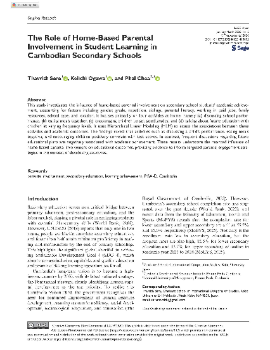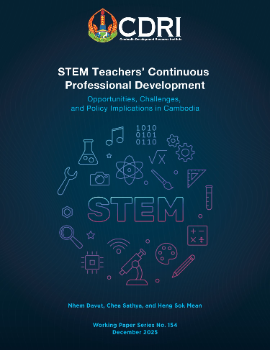
Competency-Based TVET in Cambodia: Promise and Reality
Keyword: competency-based training (CBT), TVET, teaching and learning approaches, labour market, skill gaps
Abstract/Summary
This study examines the development and implementation of competency-based training (CBT) in Cambodia’s technical and vocational education and training (TVET) sector. Introduced to align education with labour market needs, CBT emphasises student-centered, practice-oriented learning and flexible, modular curricula. Despite its potential, CBT implementation faces significant challenges. Through qualitative research involving CBT program developers, TVET institution directors, and instructors, the study identifies gaps in knowledge, skills, and attitudes among stakeholders. Developers demonstrated strong understanding and commitment, while directors were less engaged due to broader administrative responsibilities. Instructors showed enthusiasm but lacked adequate training and resources. Key obstacles include insufficient materials and equipment, limited technical experience among instructors, and lack of systematic program evaluation. Internship opportunities and Return to Industry training have helped mitigate some issues, but inconsistencies in dissemination and support persist. The study recommends accelerating instructor training, enhancing resource provision, fostering inter-institutional collaboration, and establishing dedicated evaluation mechanisms. Despite implementation hurdles, stakeholders recognise CBT’s value in improving student competencies and labour market relevance. Strengthening CBT delivery is essential for Cambodia’s workforce development and economic competitiveness.



